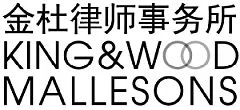- within International Law, Government, Public Sector and Strategy topic(s)
- with Senior Company Executives, HR and Inhouse Counsel
- in United States
- with readers working within the Metals & Mining, Oil & Gas and Telecomms industries
Most recently,a piece of news related to the
Anti-Monopoly Law ("AML")indicates that, the National Development and Reform Commission("NDRC")who is in charge of the implementation of the Price Law and price-related antitrust violation, communicated with the State Administration of Radio, Film, and Television("SARFT")1, for SARFT's proposed draft of Guidance on Further Regulation of Movie Ticket Business("draft Guidance").It is reported that SARFT is suspected of abusing its administrative power for fixing the price of movie tickets.
Fact
On 26 February 2012, the draft Guidance was posted on the internet by a micro-blogger. According to the draft Guidance, SARFT divides the sales market of movie tickets into several districts, and sets the guided price (i.e.highest retail price) of movie tickets for each of the district. It also provides that the movie tickets for theater members and group buyers should not be sold for less than 70% of the listed price.
It is reported that the Price Supervision, Inspection and Anti-monopoly Bureau("Price Supervision and Anti-monopoly Bureau")of NDRC contacted SARFT on this matter. SARFT explained that the draft Guidance was just an internal document still under the opinion-seeking process, and would be modified by taking into account suggestions of various stakeholders.
Comment
This is a quite interesting issue that may involve both the Price Law and the AML.
According to the Price Law, the prices of most commodities and services shall be regulated by the market and the prices of a very small number of commodities and services shall be guided or fixed by the government. The limits of powers and the scope of commodities and services that are subject to government guided or fixed prices shall be based on the central and local pricing catalogues. Apparently, the movie ticket is not under the pricing catalogues, meaning that its price shall be regulated by the market rather than thegovernment or relevant authorities. Under such circumstances, to set the highest retail price for movie tickets would violate the Price Law. According to the Price Law, any relevant department that sets prices in violation of the Price Law by extending beyond the limit of its pricing authority or the scope of commodities and services that are subject to government guided or fixed prices shall be ordered to make rectification and may be subject to a notice of criticism; the persons who are directly in charge and the other persons who are directly responsible for the offence shall be subject to administrative sanctions according to law.
The issue may also fall under the purview of the AML. The AML prohibits the abusing of administrative power for elimination and restriction on competition. According to Article 37 of the AML, the administrative authorities shall not abuse their administrative powers to formulate provisions which exclude or restrict competition. In particular, Article 22 of the Regulations on Anti-Price-Monopoly2 stipulates that the administrative agencies shall not abuse their administrative powers to formulate any regulation that excludes or restricts price competition. The provision of the draft Guidance that sets a minimum price of 70% of list price on member discount tickets and group discount tickets is likely to compel the suppliers of movie tickets to fix the minimum price of discount tickets, which is clearly prohibited by the Regulations on Anti-Price-Monopoly.
According to the AML, administrative authorities which abuse their administrative powers to exclude or restrict competition shall be ordered by the higher authorities to make correction; the person(s)-in-charge who are directly responsible and other directly accountable personnel shall be punished pursuant to the law. The anti-monopoly enforcement agency may propose to the relevant higher authority on how to appropriately deal with the monopoly conducts.
This incident sets a good example that reminds government authorities not to abuse their administrative powers to eliminate and restrict competition. NDRC's timely intervention on this matter is applauded by both the general public and antitrust law experts. We will keep an eye on this case and follow up if there is any substantive development.
Footnotes
1SARFT is an executive branch under the State Council of the People's Republic of China.Its main task is the administration and supervision of radio, film and television business.It is the industry regulator of the radio, film and television industries. Besides, it directly controls state-owned enterprises at the national level such as China Central Television, China National Radio, China Radio International,as well as other movie and television studios and others non-business organizations.
2Regulations on Anti-Price-Monopoly is issued by NDRC and became effective as of February 1, 2011.
The content of this article is intended to provide a general guide to the subject matter. Specialist advice should be sought about your specific circumstances.



